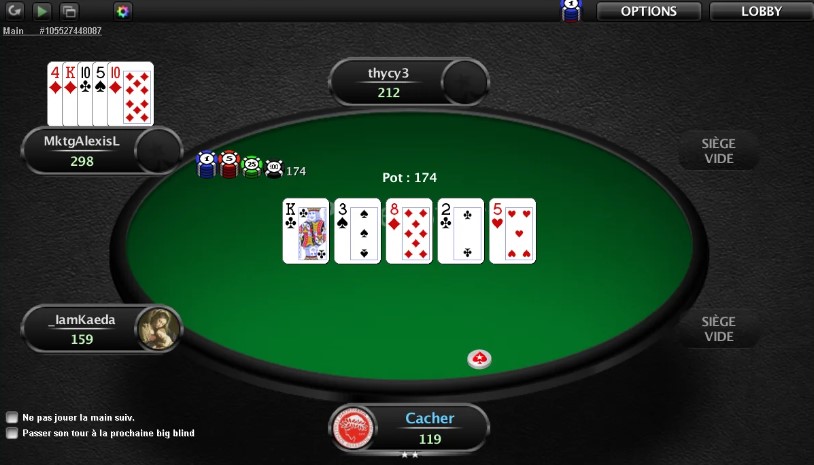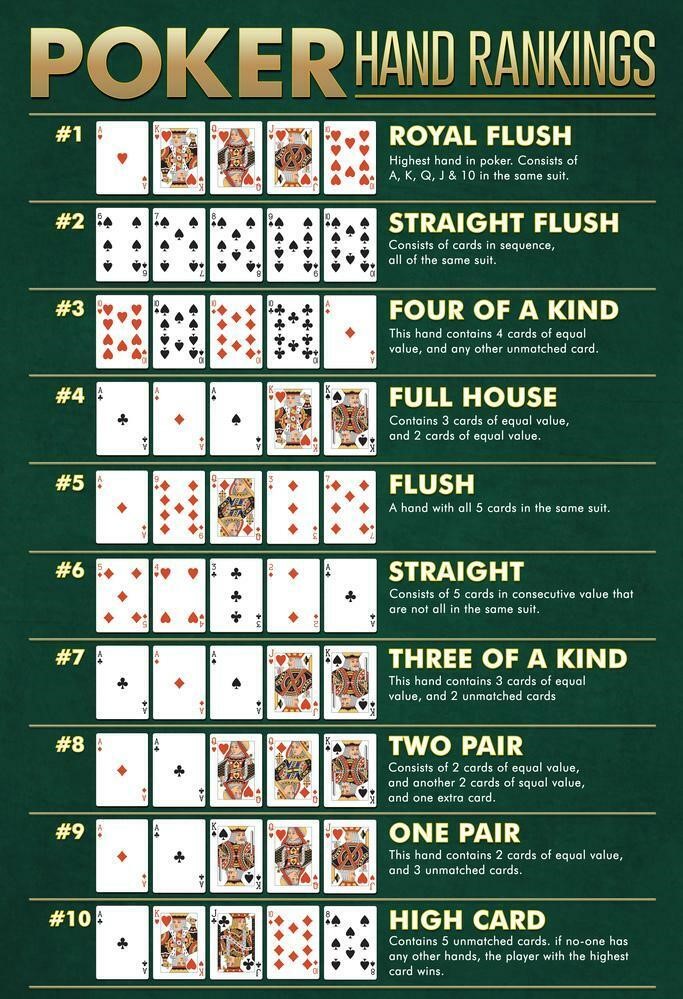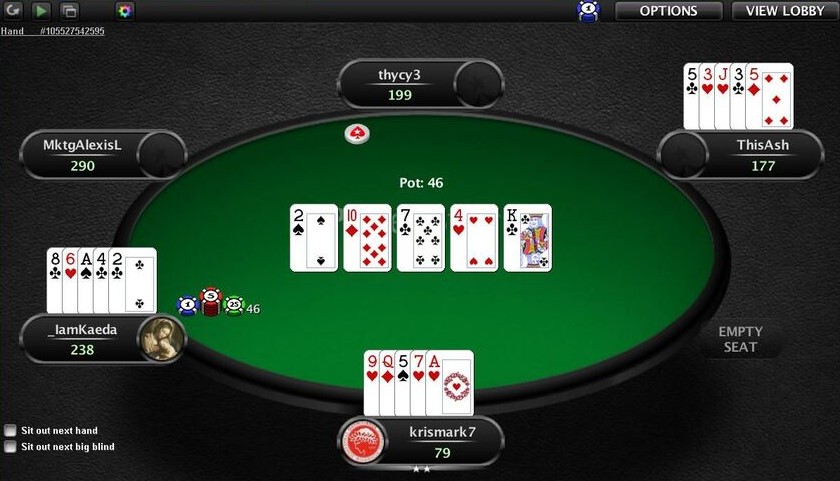Courchevel High-Low Poker: Rules, Combinations, and Gameplay Strategy
Poker comes in dozens of variations. Some of them date back to the 1950s and 1970s, while others have emerged relatively recently. In the latter category, you’ll find “Courchevel High-Low,” a 5-card variation of poker with an open board where participants must simultaneously form two combinations.
Game Rules:
The advantage of “Courchevel High-Low” poker lies in its standard rules. Each deal consists of four main streets, accompanied by rounds of betting where participants make contributions to the pot.
Gameplay:
- Two players to the left of the dealer button post blinds, which are mandatory bets. The blind sizes depend on the table’s limit. For example, if the table has a value of $0.1/$0.2, the player in the small blind position (SB) posts a small blind of 10 cents, and the player on the big blind position (BB) bets 20 cents.
- The main deal begins. During the preflop, players are dealt five pocket cards. Their rank and suit are not visible to opponents. Because of this, until the final phase of the deal, participants don’t know who has the best combinations and will become the winner. At this stage, one card from the board is also revealed, placed face down on the table. Then, players start a round of betting.
- Next comes the flop, and two more cards are revealed on the board. Participants then engage in the next round of betting.
- The third stage of dealing begins—the turn. Another common card is placed on the board, and the next round of betting occurs.
- The fourth stage is the river. The last, fifth card appears on the board. Players can objectively assess their chances of winning and make more informed decisions in the final round of betting. After this, the final stage ensues, where participants compare their combinations.
During the betting rounds, poker players announce their decisions regarding the continuation of the game. They can make a bet to stay in the hand, call to match their opponent’s bet, fold their cards, or raise the stakes. Raising involves announcing larger bets than those made by opponents. Starting from the flop, players can also check, which means passing their turn, passing the initiative in the betting to the next player.

Not every hand ends with a comparison of combinations. If in any of the betting rounds, participants fold their cards in response to an opponent’s bet, that opponent wins the pot, regardless of the strength of their cards.
Combinations in “Courchevel High-Low” Poker
When forming combinations, players must use any two pocket cards and three from the board. When assembling a high hand, players should follow the classic hierarchy. According to it, the highest card is the lowest combination, while a royal flush is the strongest.

When forming low combinations in “Courchevel High-Low” poker, players must remember the following rules:
- An ace is always considered as one.
- Flushes and straights are not counted.
- Ranks higher than eight should not be included.
If a player cannot form a qualifying low hand according to these rules, they will only compete for the high hand portion of the pot. In such cases, the pot is divided between the player with the highest high hand and the player with the lowest qualifying low hand. If one player has the best high and low hands, they win the entire pot.
Strategy in “Courchevel High-Low” Poker
In “Courchevel High-Low” poker, it’s important to learn how to evaluate the strength of your starting cards correctly:
- Starting hands like A-2-x-x-x, A-3-x-x-x, A-4-5-x-x, and 2-3-x-x-x are well-suited for winning the low pot.
- Hands like A-A-x-x-x, A-K-x-x-x, K-K-x-x-x, Q-Q-x-x-x, etc., have potential for winning the high pot.
On the post-flop streets, base your decisions on the strength of your made hands. If you have a low-value hand, it’s better to check. You can call small bets from opponents with medium-strength hands. With hands of moderate strength, be more aggressive by raising. When you have the nuts, adjust your strategy based on your opponents’ playing styles. If there are aggressive players at the table, make small bets to induce them to raise. Against tight opponents, make moderate pot-sized bets to avoid them folding.
Variations of the Game
“Courchevel High-Low” poker also has a classic variation where participants only need to form a high hand. This simplifies the game, making it a recommended starting point for beginners.
Differences from Other Poker Variants
This discipline is similar to Omaha High-Low, with the main difference being the number of pocket cards – players receive four instead of five. “Courchevel High-Low” poker differs from other poker variants in several ways:
- In Texas Hold’em, players receive only two hole cards, and the player with the strongest high hand wins.
- In Texas 6+, the game is played with a shortened deck, and players aim for the highest hand.
- Stud and Razz variants differ as there is no community board. Players use only their pocket cards to form combinations.
Where to Play “Courchevel High-Low” Online
You can currently find this poker variant only in online poker rooms. You can play for free with play chips or at real money tables. The typical format for these games is 6-max.

In some poker rooms, multi-table tournaments (MTTs) for “Courchevel High-Low” poker are also available. Buy-ins for these tournaments start as low as 10 cents, and they offer cash prize pools.
Limits and Other Features
The stakes at “Courchevel High-Low” poker tables start at $0.1/$0.02. In larger rooms, the maximum blind sizes can reach $100/$200, while in smaller online rooms, they may be around $10/$20.
Tables in the rooms come with the following betting limit variations:
- Pot-Limit: Players cannot raise more than the current size of the pot.
- Limit: There are restrictions on the maximum bet size.
- No-Limit: Players can bet any amount, including going all-in with their entire stack.
Getting Started for Beginners
Even if you plan to play at free tables in a poker room, you will still need to go through the registration process, which is typically a straightforward procedure with a standard set of steps.
Let’s look at the process of creating an account as an example using “Pokerdom”:
- Open the official website of the poker room.
- At the top of the homepage interface, click on the “Registration” button.
- Fill out the form with your email address, account currency, password, and country of residence.
- Agree to the room’s terms and conditions.
- Click the “Register” button.
You can play at “Pokerdom” through the web client or by downloading the application. The download link for the software is usually available in the “Poker” section of the website. Alternatively, you can request it from customer support by sending a message through the online chat.
The next step is to log in using your username and password, which will grant you access to the cashier. Through the cashier, you can make a deposit if you plan to play for real money. “Pokerdom” typically offers a 100% bonus on your first deposit.
Poker Training
Poker, despite its simplicity, has many nuances, and success in the game comes to those who dedicate time to learning. Newcomers can undergo training at the “Pokerdom” school, which offers special free courses for such players. Experienced users may consider advanced training on online platforms or explore options for individual coaching.
It is also recommended to read books, watch video materials on free hosting platforms, and study articles on thematic websites. This will help you master all the intricacies of poker and have a positive impact on your win rate.
